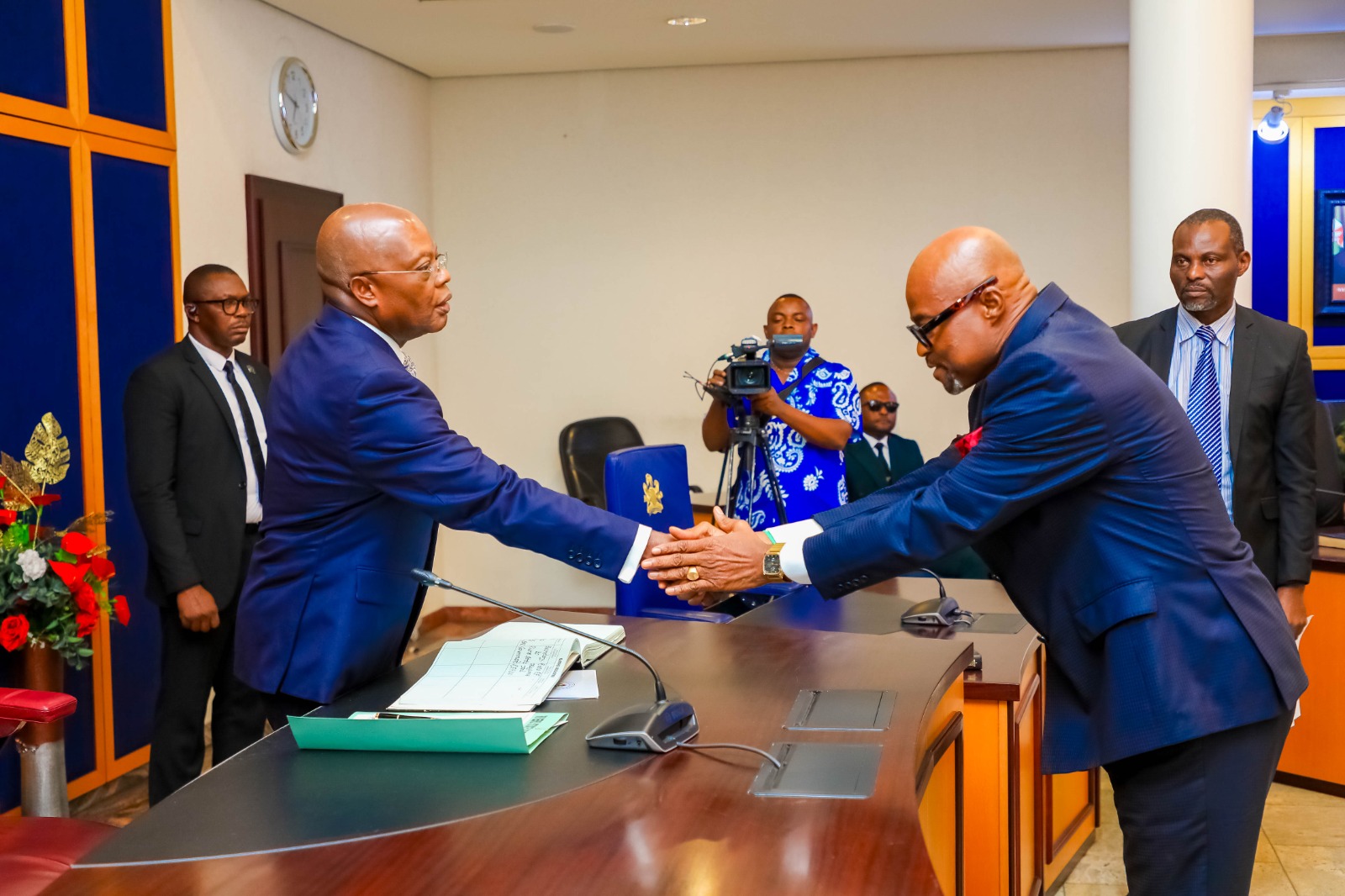Featured
First Lady, Govs’ Wives Sign Agreement To Combat GBV

The First Lady, Sen. Oluremi Tinubu, has signed an agreement with governors’ wives to combat Gender-Based Violence (GBV) and harmful social practices against women.
The agreement was signed in Abuja, yesterday, at the first Gender and Social Norms Summit 2024, organised by the UN Population Fund (UNFPA) and the Renewed Hope initiative, in collaboration with the Office of the First Lady.
In her keynote address, the first lady said that the prevalence of harmful practices such as Female Genital Mutilation (FGM), assault on women, and Child Marriage, which in some cases lead to Vesicovaginal Fistula (VVF) remain unacceptably high.
According to her, incidences of such practices have continued to increase in spite of various efforts.
She also said that recently, the spate of rape cases and GBV had reached an alarming rate, not sparing babies too.
“Do we allow this trend to continue, or do we look the other way?.
“That is why I am calling on law enforcement agencies, the Inspector-General of Police, the Attorney-General of the Federation and the National Assembly (NASS) to appropriate and enforce stiffer laws and punishments for perpetrators of rape, sexual violence and other forms of GBV.
“No guilty party should be allowed to go free and start roaming the streets looking for the next victim.”
Tinubu, however, said that collective action was needed to put an end to the practices.
She advocated the development of state-specific action plans to promote the allocation of adequate resources in government budgets to support gender equality initiatives and GBV prevention programmes.
She added that “this summit provides us with common platform to create awareness, exchange lessons learned and promote effective strategies toward preventing and responding to GBV and harmful practices.”
The UNFPA Officer-In-Charge, Mr Koessan Kuawu, said family planning is not only a crucial health intervention but a cornerstone
of gender equality and women empowerment.
He, however, noted that social norms drive misconceptions and cultural barriers in many communities across the country, hindering the uptake of family planning.
According to him, Nigeria occupies a unique position globally in the pursuit of the Sustainable Development Goals (SDGs) for 2030 due to its vast population.
He commended the Federal Government “for its steadfast dedication to creating an enabling environment through the passage and enforcement
of critical legislations such as the Violence Against Persons Prohibition (VAPP) Act 2015.
“The implementation of the National FGM Policy, the National Child Marriage Policy, and state-specific action plans are also highly commendable to eliminating the menace.
“These milestones have been achieved through persistent advocacy, aimed at strengthening the adoption and implementation of these laws.”
He explained that though eliminating GBV and harmful social practices is an immense task, it is not insurmountable.
“With the right resources, political will and community support across the states, we can change the narrative for women and girls in Nigeria,” Kuawu said.
On her part, the Minister of Women Affairs and Social Development, Mrs Uju Ohanneye, advocated stricter penalties for perpetrators.
She explained that “overseas, where people are afraid to commit crimes or social norms or things that can harm another, it’s because when
you do it, you face the consequences, legally and otherwise.
She reiterated the commitment of the ministry to support and implement programmes toward eliminating GBV.
The Attorney-General of the Federation, Lateef Fagbemi (SAN), defined social norms as unspoken rules or expected behaviours that
set social standards of appropriate and inappropriate manners in a specific culture or social group.
Fagbemi, who was represented by the Solicitor-General of the Federation, Mrs Beatrice Agba, said “GBV encompasses various forms of violence
directed at individuals based on their gender, often rooted in unequal power dynamics and societal norms.”
He, however, noted that the practices “may unfortunately be attributed to the patriarchal and male dominance theoretical framework in place in our society.”
He said that the Federal Ministry of Justice is fully aware of the crucial roles that the justice system plays in addressing gender and social norms
through the provision of a framework for accountability, protection and empowerment.
He added that by upholding the rule of law, promoting gender equality and advancing justice for all, the justice system could contribute significantly
to creating a more inclusive, equitable and just society for the present and future generations.
Also, that in addition to ongoing legislative reforms, the ministry was working with critical stakeholders to engage community actors such as traditional rulers,
faith-based organisations, and informal community justice systems to address the notions and institutions that perpetrate violence against women and girls.
“We are initiating a pilot phase with the Area Councils in collaboration with area council chairmen to support ongoing dialogue and initiatives on this subject,” he said.
Featured
Bring Your Wealth Of Experience To Governance, Ibas Tasks New SSG

The Sole Administrator of Rivers State, Vice Admiral Ibok Ete Ekwe Ibas (rtd), has charged the new Secretary to the State Government (SSG), Prof Ibibia Lucky Worika to bring his wealth of experience to bear in governance of the State.
Vice Admiral Ibas (rtd) gave the charge shortly after swearing in the new SSG at the executive chambers of Government House on Wednesday night.
The Administrator who congratulated Prof Worika on his appointment said the choice was not merely an administrative decision but a statement of intent.
Vice Admiral Ibas (rtd) explained that the new SSG has an unparallel expertise in law, policy and international governance, which align perfectly with the mission to restore law, order, integrity and public trust in Rivers State.
He said: “To our new SSG, the task ahead is onerous, but your track record leaves no doubt in our minds that you will prove your mettle. Rivers State needs your intellect, grit and unweaving dedication. Together, we will write a new chapter of progress for this great state.
“Prof Worika’s role will be critical in driving this vision, ensuring that every policy, every decision and every action is in consonance with this administration’s mandate to restore law and order, stabilize the polity and to create the necessary conditions for the restoration of democratic institutions and representations.”
Vice Admiral Ibas (rtd) pointed to his maiden address to Rivers people wherein he emphasised that his administration will be committed to delivering an effective governance that is anchored on transparency, accountability and service.
He therefore, enjoined the new SSG to brace up to the demands of his office, and offer his best service as required while also working cooperatively with civil servants.
Vice Admiral Ibas (rtd) said: “You have no time to settle down. You must roll up your sleeves and get to work with the team.
“Our civil servants with whom we will work closely to run this administration are critical stakeholders and we must work with them to ensure that the state continues to function effectively during this administration.
“To the Permanent Secretaries and civil servants as a whole, once more I will ask your kind cooperation and support as we work to achieve our objectives at this time,” he added.
Featured
I Am One Of You, Sole Administrator Tells Rivers People …Warns Against Violence, Crude Oil Sabotage

The Sole Administrator of Rivers State, Retired Vice Admiral Ibok-Ete Ibas (rtd), has assured residents that he is not in the State as a partisan actor or political competitor but as a stabilising force to restore governance and order.
In a state broadcast yesterday, Ibas, who assumed duty at Government House, Port Harcourt, emphasised his commitment to protecting civil liberties and ensuring the safety of all citizens.
However, he issued a stern warning against crude oil sabotage and violence, urging residents to resist any temptation to return to past hostilities.
“For decades, I have dedicated my life to the service of our great nation—first as the 20th indigenous Chief of Naval Staff and later as Nigeria’s High Commissioner to Ghana. I answered this call out of the need for peace in Nigeria, and most importantly, in Rivers State,” Ibas stated.
Describing the prolonged political impasse as a major setback to governance and democracy, he acknowledged the hardships faced by families and businesses due to the prevailing uncertainty.
“As a son of the Niger Delta, I am one of you. I feel the weight of this crisis on families, businesses, and the future of our people,” he said.
Ibas commended President Bola Tinubu’s decisive action in declaring a state of emergency in Rivers State, stressing that it was a necessary move to restore stability and revive economic activities.
“My mandate is clear: restore law and order, ensure stability, and create an enabling environment for economic growth. But this mission requires collective support from all stakeholders, regardless of political affiliation or ethnicity,” he stated.
He discouraged attacks on oil infrastructure, reminding residents of the devastating environmental and economic consequences of such actions.
“The Niger Delta has moved beyond the destruction of oil facilities. We must resist the temptation to return to those ugly days,” he cautioned.
While pledging to uphold civil liberties and the rule of law, the Sole Administrator warned that lawlessness and violence would not be tolerated.
“We will not act arbitrarily, but we will not hesitate to deal decisively with anyone who threatens the peace and stability of Rivers State,” he declared.
Ibas revealed that he had concluded a State Security Council meeting where strategic measures were outlined to de-escalate tensions and prevent further conflict.
Expressing gratitude to President Tinubu for entrusting him with the responsibility, he also acknowledged the National Assembly for approving the emergency declaration.
“I will work closely with the national leadership under the guidance of the President. I am optimistic that Rivers State will emerge stronger and greater,” he concluded.
Featured
Abuja Truck Explosion Death Toll Rises To 10 …As Another Truck Crashes On Same Spot

The Federal Capital Territory Emergency Management Department has confirmed that 10 persons have died in the truck explosion that occurred near Karu bridge, along the Abuja-Keffi Expressway, on Wednesday.
The FEMD’s Head of Public Affairs, Nkechi Isa, confirmed the numbers in a statement, yesterday.
The Acting Director General of the Emergency Department, Abdulrahman Mohammed, had earlier confirmed that eight persons had died as of yesterday morning, with five confirmed dead on the scene, and four others burnt beyond recognition.
““Five people were taken dead from the scene yesterday (Wednesday). Out of the people that were injured, one died, making six. Then this morning (yesterday), when I asked my people to go round, they discovered that two had already died again, making eight. Four of them from yesterday were burnt beyond recognition.”, he explained.
However, in her statement, Isa said the Head, Forecasting Response and Mitigation of FEMD, Mr Mark Nyam, said eight bodies were deposited at the Karu Hospital Morgue, one body at the Asokoro Distinct Hospital Morgue while another body was deposited at the National Hospital.
He added that some victims had been referred to the Gwagwalada Teaching Hospital, Federal Medical Centre, Keffi, and Cedercrest Hospital Abuja for proper care.
Part of the statement reads, “The FCT Emergency Management Department FEMD can confirm that 10 persons lost their lives to the truck explosion that occurred at Karu bridge along Abuja / Keffi expressway.
“The Head Forecasting Response and Mitigation of FEMD, Mr Mark Nyam said eight bodies were deposited at the Karu Hospital Morgue, one body at the Asokoro Distinct Hospital Morgue while another body was deposited at the National Hospital.”
He informed that over 30 persons suffered various degrees of burns.
“Some of the victims have been referred to Gwagwalada Teaching Hospital, Federal Medical Centre,Keffi and Cedercrest Hospital Abuja for proper care,” he said.
Isa also stated that no fewer than 10 vehicles were burnt during the incident, adding that the FEMD boss after a visit to the incident scene, appealed to motorists to observe traffic rules and regulations.
He also cautioned against reckless driving, dangerous overtaking and poor maintenance of vehicles, while urging FCT residents to always use the 112 emergency toll free number in the event of an emergency.
Meanwhile, barely 24 hours after the incident, another fertiliser-laden truck has collapsed on the same spot.
The Tide learnt that the incidence occurred at about 3:54pm yesterday.
The Head of Public Affairs of the FCT Emergency Management Department, Nkechi Isa, confirmed the accident in a statement, stating that the truck collided with a Hijet and a dump truck, adding that no life was lost.
She cautioned road users to drive with caution as the Federal Road Safety Corps was making efforts to tow away the affected vehicles, to avoid traffic built up.
“Another accident has occurred under Karu bridge along the Abuja-Keffi Expressway. Thankfully, no life was lost to the incident. Our Search and Rescue say the accident occurred when a truck laden with fertilizer ran into a Hijet and a dump truck also known as tipper.
“Motorists are advised to drive with caution as the Federal Road Safety Corps is taking steps to tow away the affected vehicles in order to avoid traffic built up,” the statement read.
Meanwhile, several videos showed some persons trying to clear the fertiliser bags from the fallen truck to ease traffic.
-

 News14 hours ago
News14 hours agoNiMET Predicts Heavy Rain, Thunderstorms In Nigeria For Three Days
-

 Politics13 hours ago
Politics13 hours agoLP Condemns Baba-Ahmed Over Statement On Tinubu’s Administration
-

 News13 hours ago
News13 hours agoOpurum Unveils Eze Ndudiri’s Palace
-

 Maritime2 hours ago
Maritime2 hours agoFOU Zone Customs Impounds N1.01bn Worth Goods
-
Niger Delta14 hours ago
A’Ibom Partners Senior Citizens Centre
-

 City Crime13 hours ago
City Crime13 hours ago‘NFF Conducted Federation Cup Draw Fairly’
-

 News14 hours ago
News14 hours agoNDLEA Pushes For Drug Tests On NYSC Members
-

 Politics13 hours ago
Politics13 hours agoLP Crisis: Resign Or We Flush You Out, NLC Tells Abure











